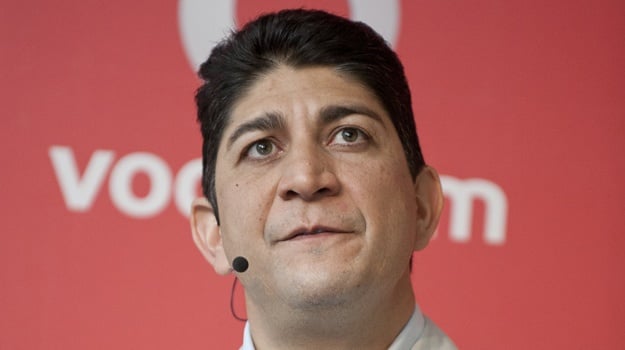Vodacom announced earlier this week that it would be slashing its data prices by at least 30%, but some consumers and activists think the company could have done more. After all, the Competition Commission said when it released its data market inquiry report in December last year that evidence at its disposal suggested there was scope for Vodacom and MTN to reduce their data prices by between 30% to 50%.
Taking the price of 1 GB of data, which will decrease to R99 on 1 April from R149, it appears Vodacom went for the low range of possible price cuts. Vodacom CEO Shameel Joosub said prices were slashed by up to 50% on certain bundles and that customers who buy smaller values will benefit the most, but more details will become clear when the new prices become effective.
"Really, 34%?" remarked Tebogo Khaas, convenor and trustee of Public Interest SA, after Vodacom announced the decrease in the price of its 1GB data bundle.
Cell C is already selling its 1GB data bundle more cheaply, when factoring in that at R100, it comes with an additional 2GB of night time data. Rain is selling 1GB for R50. It can be argued that Vodacom has more towers to maintain and therefore its costs are much higher. But it also has more customers to help it cover those costs.
The spectrum debate
Joosub said the company needed government to accelerate the allocation of additional spectrum to reduce the cost of producing data, so that network providers may cut their prices further. The last time government allocated new spectrum to Vodacom and MTN was in 2004.
"The cost to produce a gig of data has been going up over the years, exchange rate being one of the contributors and access to sites being another. Without spectrum you have to build more sites. That’s where the cost actually comes from."
- READ | MTN CEO to step down
Competition Commissioner Tembinkosi Bonakele backs Vodacom’s argument, saying it is crucial that spectrum is released without further delays. "We’ve said this in our report as well. We were quite clear that spectrum must be released without delays. It is a cost to our economy, it’s a cost to the efficiency of the entire country," he said.
But some #DataMustFall activists, including Khaas, believe that Vodacom is using the spectrum allocation debate as a distraction.
Minister of Communications and Digital Technologies, Stella Ndabeni-Abrahams, agrees that as mobile network operators drop prices, they will have to accommodate a lot more people. This means they will be producing more data and they will need more capacity or spectrum to meet the demand and thus the urgency of completing spectrum licensing is renewed.
"The spectrum auction will take place by no later than the end of the year (2020) as announced by the president during the State of the Nation Address," said Ndabeni in a statement issued after the signing of the Vodacom-Competition Commission agreement.
Punishing abuse of market dominance
While the Vodacom agreement has shone spotlight on what’s pushing the price of data up, the question remains on whether the Competition Commission did enough to deter future abuse of market dominance since mobile all that the mobile operators had to do was reach an agreement with the authorities. No penalties were levied, no sanctions were issued and there was no directive to make redress.
The Commission's data market inquiry report included damning findings against Vodacom and MTN. It said that they used their market dominance to maintain "price discrimination strategies" in South Africa whereas they did not do the same in other African markets where they operate.
Joosub said Vodacom proactively approached the Competition Commission to reach an agreement when the report was published because it wanted to engage constructively instead of fighting the regulator in court, as that was also an option. But with allegations of market abuse, shouldn’t the Commission have sent a strong message that this is a punishable offence?
"This is not a signal that in any way that in general, and in all future matters, there will be no prosecution of other companies and other sectors," said Minister of Trade and Industry Ebrahim Patel.
Bonakele said the commission had to weigh the possibility of "protracted litigation" and finding a beneficial outcome faster, thus ensuring that consumers did not continue to pay higher prices for data for much longer.
"We could have litigated for another five to ten years before any of these benefits could probably be realised," said Bonakele.
Patel said if the Commission wasn’t able to find equitable outcome to benefit consumers without going through the lengthy legal route, government would have supported a punitive which would have entailed taking the mobile operators to the Competition Tribunal and levying fines on them if they were found guilty.





















